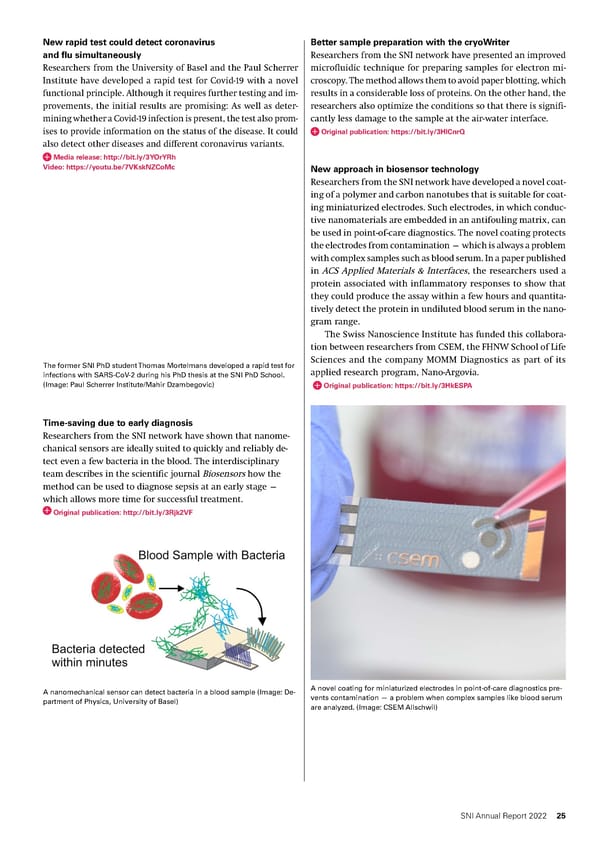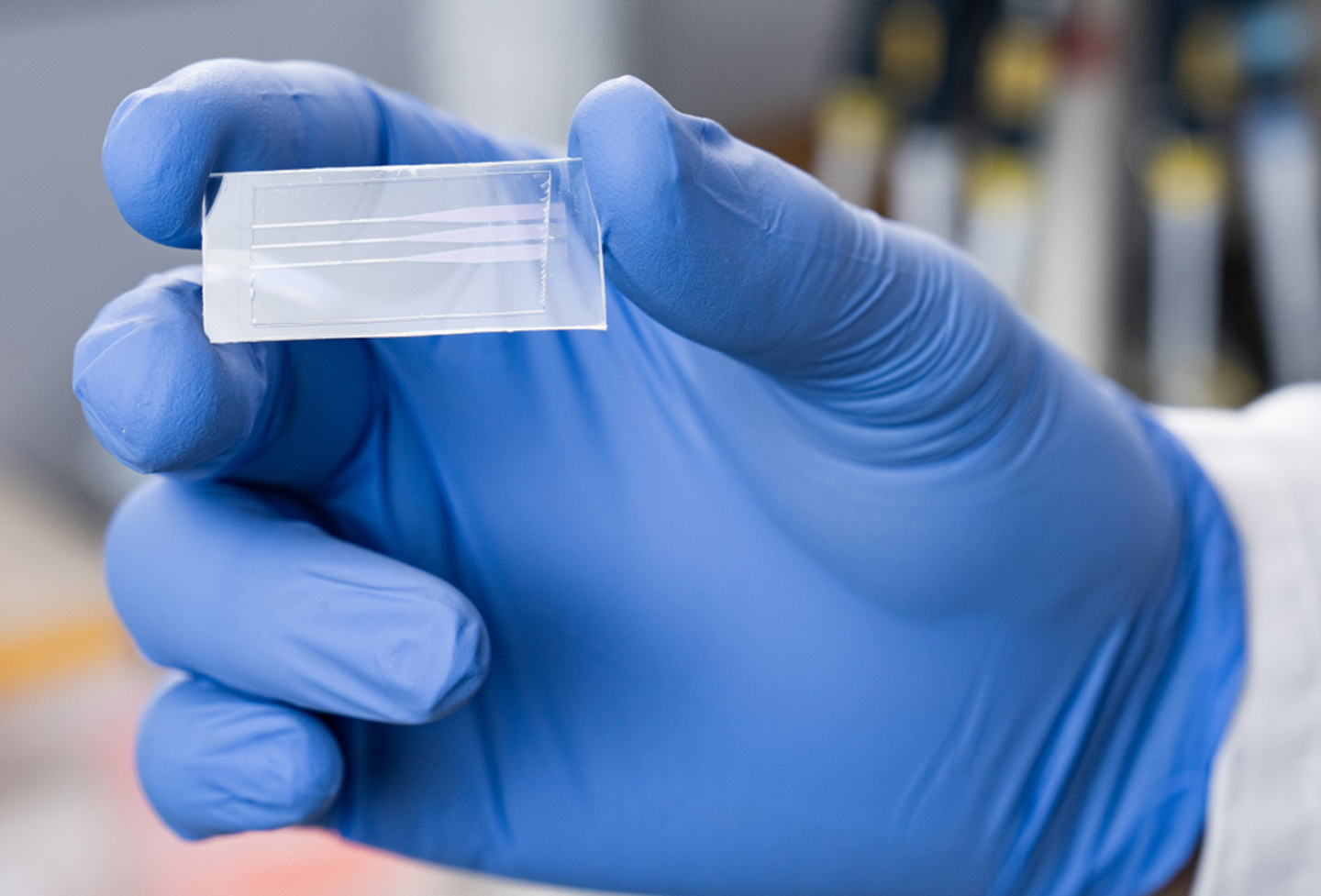New rapid test could detect coronavirus Better sample preparation with the cryoWriter and flu simultaneously Researchers from the SNI network have presented an improved Researchers from the University of Basel and the Paul Scherrer microfluidic technique for preparing samples for electron mi- Institute have developed a rapid test for Covid-19 with a novel croscopy. The method allows them to avoid paper blotting, which functional principle. Although it requires further testing and im- results in a considerable loss of proteins. On the other hand, the provements, the initial results are promising: As well as deter- researchers also optimize the conditions so that there is signifi- mining whether a Covid-19 infection is present, the test also prom- cantly less damage to the sample at the air-water interface. ises to provide information on the status of the disease. It could Original publication: https://bit.ly/3HICnrQ also detect other diseases and different coronavirus variants. Media release: http://bit.ly/3YOrYRh Video: https://youtu.be/7VKskNZCoMc New approach in biosensor technology Researchers from the SNI network have developed a novel coat- ing of a polymer and carbon nanotubes that is suitable for coat- ing miniaturized electrodes. Such electrodes, in which conduc- tive nanomaterials are embedded in an antifouling matrix, can be used in point-of-care diagnostics. The novel coating protects the electrodes from contamination — which is always a problem with complex samples such as blood serum. In a paper published in ACS Applied Materials & Interfaces, the researchers used a protein associated with inflammatory responses to show that they could produce the assay within a few hours and quantita- tively detect the protein in undiluted blood serum in the nano- gram range. The Swiss Nanoscience Institute has funded this collabora- tion between researchers from CSEM, the FHNW School of Life The former SNI PhD student Thomas Mortelmans developed a rapid test for Sciences and the company MOMM Diagnostics as part of its infections with SARS-CoV-2 during his PhD thesis at the SNI PhD School. applied research program, Nano-Argovia. (Image: Paul Scherrer Institute/Mahir Dzambegovic) Original publication: https://bit.ly/3HkESPA Time-saving due to early diagnosis Researchers from the SNI network have shown that nanome- chanical sensors are ideally suited to quickly and reliably de- tect even a few bacteria in the blood. The interdisciplinary team describes in the scientific journal Biosensors how the method can be used to diagnose sepsis at an early stage — which allows more time for successful treatment. Original publication: http://bit.ly/3Rjk2VF A nanomechanical sensor can detect bacteria in a blood sample (Image: De- A novel coating for miniaturized electrodes in point-of-care diagnostics pre- partment of Physics, University of Basel) vents contamination — a problem when complex samples like blood serum are analyzed. (Image: CSEM Allschwil) SNI Annual Report 2022 25
 SNI Annual Report 2022 Page 24 Page 26
SNI Annual Report 2022 Page 24 Page 26
